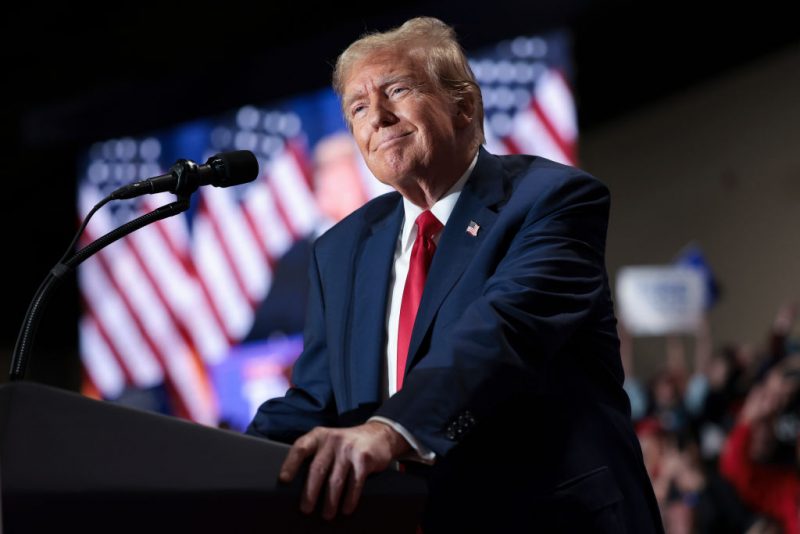Delaying election results is often seen worldwide as a sign of fraud. U.S. officials viewed it this way, too, until the 2020 election, when challenging results led to indictments for Trump, his lawyers, and top aides.
For example, when Peru delayed the results of its 2000 presidential election, taking three days for the presidential race, more than a month for congressional races, and experiencing a “mysterious” lapse in transporting ballot boxes, the Clinton administration took notice. A State Department spokesperson urged Peru to ensure that “the next round of voting fully meets democratic standards of openness, transparency, and fairness.” Peruvian President Alberto Fujimori’s campaign faced accusations of manipulating the media, forging voter registrations, and using pre-marked ballots, which are similar to issues raised in the 2020 U.S. election, as election fraud tends to share common signs.
Research has shown that delayed results often correlate with fraud and sometimes violence. A study of African elections from 1997 to 2022 found that “the length of time between elections and the announcement of the official results acts as a signal of possible voter fraud, thereby increasing incentives for post-election violence.” Likewise, in Honduras’s 2017 election, delays led to unrest and 17 deaths. Here, too, the U.S. State Department noted the irregularities, calling for “much-needed electoral reforms.”
Could anticipated delays in the upcoming election cycle spark further political violence? With two attempts on Trump’s life, Vice President Kamala Harris raised tensions by comparing him to Hitler. In a recent Atlantic article, former Trump officials alleged he had made favorable comments about Hitler, claims Harris’s team cited in a press conference, warning against a “Hitler presidency.” Her campaign argues only she can “defend democracy” against what they portray as a looming fascist threat.
This idea of Trump as a looming tyrant echoes Hillary Clinton’s 2016 campaign narrative that Trump was “controlled” by Vladimir Putin, a notion that led to prolonged investigations during Trump’s presidency. Since 2016, Democrats have cast Trump as a fundamentally un-American figure, describing his supporters as unwitting accomplices of a foreign agent or as collaborators in a fascist plot to subvert democracy. This divisive narrative has succeeded in fracturing the American public more than any foreign power has managed.
Some analysts say Harris’s invocation of Hitler may indicate her campaign is losing momentum, but the issue might be more fundamental. Harris faces challenges in defending the Democratic Party’s stance over the last four years, as the Biden administration has overseen millions of undocumented immigrants crossing the southern border. Officials in Democratic-run cities like New York, Boston, and Los Angeles are struggling with the strain on resources and rising crime, leading some to reconsider their “sanctuary city” policies. The influx of low-wage labor is suppressing wages for American workers, but no Democrat wants to admit to burdening taxpayers with billions in services for non-citizens, nor to contemplate the economic challenges of an automated future that will make many jobs redundant.
Trump’s proposal, the centerpiece of his campaign, is to repatriate undocumented immigrants, with a path to legal immigration for those who start the process lawfully. Republicans worry, however, that these migrants are being registered to vote and that harvested ballots could sway swing states for Harris. Some GOP officials, however, note that there’s currently limited evidence of widespread voter registration among recent immigrants, as many are relocated to Democratic areas to replace Americans who left due to COVID-19 restrictions and rising living costs.
As Americans have shifted to Republican-led areas, population changes are shifting congressional seats toward these regions, reducing Democratic strongholds’ representation. This exodus poses a problem for Democrats, who might, in theory, keep borders open to maintain population and political power in these areas.
Many Trump supporters see this election as pivotal in determining whether America will have secure borders and elections or risk becoming a one-party, oligarch-run entity. With Harris supporters fearing Trump’s return and Trump supporters wary of a repeat of 2020, voters are more engaged in the electoral process than ever, monitoring polls closely.
For much of U.S. history, voters trusted that either party would guide the country reasonably. But after nearly a decade of heightened political conflict, voters are less inclined to assume this. With Trump’s lead growing as Tuesday approaches, Americans are no longer willing to take election integrity for granted.
 Telegram is where we really talk. Don't miss out!
Telegram is where we really talk. Don't miss out!






